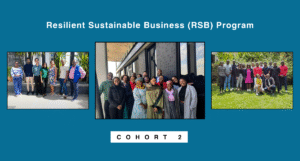Warren Buffet – We can afford to lose money — even a lot of money. But we can’t afford to lose reputation — even a shred of reputation.
On 6 July Gong Kenya, Moody’s Investor Services and the Business Council for Africa (BCA) collaborated to stage a breakfast event on the subject of ‘Reputation Capital’ in Nairobi.Gong’s Group MD, Narda Shirley started the conversation by a quote by Warren Buffet that states,
Reputation is what people say about you when you’re not there Think of social media – we can’t escape the speed at which information travels in media.
WHY DOES REPUTATION MATTERS?
- Attract the best talent possible
- Attract new opportunities for your business
- Participate in Accolades/awards
A few examples of what your organization can’t control and can affect your reputation include: News/social media, TV/radio, Bloggers, Websites, Experts & advisors and the General public.Websites such as LinkedIn, Glassdoor and Vault review, rate and give information about your business as places to work to potential hires.
We were challenged to do a search of our respective companies on a search engine (e.g. google) using a different computer. This will show us the ‘first opinions’ that the public form about our organizations.
Credible Certifications and accreditations also assist in managing a company’s reputation
We were also cautioned on how (PR) crisis can affect a company’s reputation; hence needs to be managed as soon as possible. Systems and processes should be put in place to take care of your reputation
Some examples of incidents that can affect your company’s reputation include: – leadership crisis (succession planning), environmental attacks, accidents at work, natural disasters, terrorist/cyberattacks, workforce strikes, whistle blowing, short seller attack/financial crisis, customer experience, product recalls, product harm to customers, service failure
Best practices on maintaining and managing a good reputation
- Be clear on what your company stands for – Mission / Core purpose / Values
- Manage your online presence pro-actively.
- Use the right channels in social media that are most appropriate to your company
- Advocacy program that can ascertain you are a good company
- Acquiring Awards and certifications from highly credible third parties
- Continuous Risk analysis
- Having a crisis committee in your organization; having processes and procedures around crisis.
- Scenario planning / Crisis simulation e.g. if a product being launched goes bad
- Having credible spokespeople.
- Build your reputation as a good and credible company; no need to wait for crisis, do it now when you have a good reputation.




